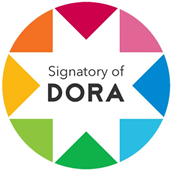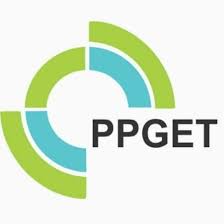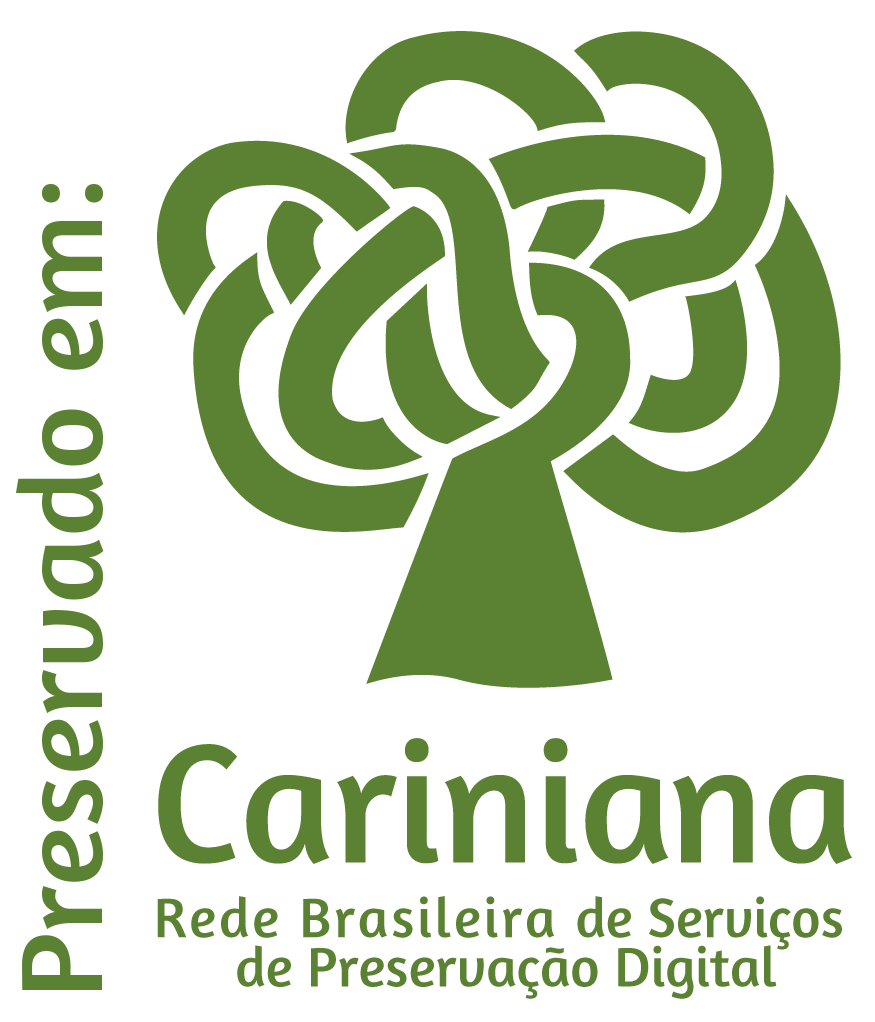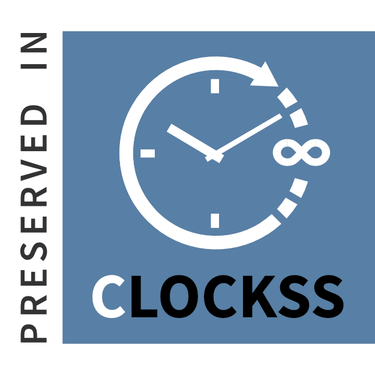Engajamento de alunos dos anos iniciais do ensino fundamental no uso de Objetos de Aprendizagem
DOI:
https://doi.org/10.31417/educitec.v8.1965Palavras-chave:
Processo de Ensino-Aprendizagem, Tecnologia educacional, Ensino FundamentalResumo
O presente artigo tem o objetivo de investigar se o uso de Objetos de Aprendizagem pode possibilitar o engajamento de alunos de 1º e 2º ano do ensino fundamental nas atividades escolares. Nele serão empregadas as concepções que consideram a existência de três dimensões do engajamento: o engajamento comportamental, o engajamento cognitivo, e o engajamento emocional. A abordagem metodológica utilizada foi a da Pesquisa-ação e a coleta de dados foi realizada por meio do acompanhamento de aulas realizadas em um laboratório de informática de uma escola municipal localizada no interior do Estado de São Paulo e de entrevistas com as professoras participantes. De maneira geral, os resultados indicam que o uso de Objetos de aprendizagem é uma alternativa viável para promover o engajamento dos alunos nas atividades escolares. No entanto, a partir dos dados coletados, não foi possível compreender os motivos que levaram alguns alunos a não se engajarem nas atividades, e por esse motivo, consideramos relevante a realização de pesquisas que investiguem os fatores que resultem em comportamentos desengajados durante o uso de Objetos de Aprendizagem.
Downloads
Referências
AUDINO, D. F.; NASCIMENTO, R. S. Objetos de Aprendizagem – Diálogos entre conceitos e uma nova proposição aplicada à educação. Revista Contemporânea de Educação, Rio de Janeiro, v. 5, n. 10, p. 128-148, jul/dez. 2010. Disponível em: https://revistas.ufrj.br/index.php/rce/article/view/1620/1468. Acesso em: 11 fev. 2022.
APPLETON, J. J. et al. Measuring cognitive and psychological engagement: Validation of the Student Engagement Instrument. Journal of School Psychology, [S.l.], v. 44, n. 5, p. 427-445, out. 2006. DOI: https://doi.org/10.1016/j.jsp.2006.04.002 DOI: https://doi.org/10.1016/j.jsp.2006.04.002
APPLETON, J. J.; CHRISTENSON, S. L.; FURLONG, M. l J. Student engagement with school: Critical conceptual and methodological issues of the construct. Psychology in the Schools, [S.l.], v. 45, n. 5, p. 369-386, abr. 2008. DOI: https://doi.org/10.1002/pits.20303. DOI: https://doi.org/10.1002/pits.20303
BRASIL. Ministério da Saúde. Conselho Nacional de Saúde. Resolução nº 510, de 7 de abril de 2016. Trata sobre as diretrizes e normas regulamentadoras de pesquisa em ciências humanas e sociais. Diário Oficial da União, Brasília, DF, 24 maio 2016. Disponível em: http://conselho.saude.gov.br/resolucoes/2016/Reso510.pdf. Acesso em: 11 fev. 2022.
BULEGON, A. M.; MUSSOI, E. M. Pressupostos pedagógicos de Objeto de Aprendizagem. In: TAROUCO, L. B. M. R.; COSTA, V. M.; ÁVILA, B. G.; BEZ, M. R.; SANTOS, E. F. (orgs.) Objetos de aprendizagem: teoria e prática. Porto Alegre: Evangraf, 2014. p. 54-75. Disponível em: https://lume.ufrgs.br/handle/10183/102993. Acesso em: 11 fev. 2022.
CHIZZOTTI, A. Pesquisa qualitativa em Ciências Humanas e Sociais. 3. ed. Petrópolis: Vozes, 2006.
ESTELL, D. B.; PERDUE, N. H. Social support and behavioral and affective school engagement: The effects of peers, parents, and teachers. Psychology in the Schools, [S.l.], v. 50, n. 4, p. 325-339, fev. 2013. DOI: https://doi.org/10.1002/pits.21681. DOI: https://doi.org/10.1002/pits.21681
FERREIRA, H.; CASSIOLATO, M.; GONZALEZ, R. Uma experiência de desenvolvimento metodológico para avaliação de programas: o modelo lógico do Programa Segundo Tempo. Brasília: Ipea, 2009. Disponível em: https://lume.ufrgs.br/handle/10183/40821. Acesso em: 11 fev. 2022.
FINN, J. D.; ROCK, D. A. Academic success among students at risk for school failure. Journal of Applied Psychology, Washington, v. 82, n. 2, p. 221-234, abr. 1997. DOI: https://doi.org/10.1037/0021-9010.82.2.221. DOI: https://doi.org/10.1037/0021-9010.82.2.221
FINN, J. D.; ZIMMER, K. S. Student engagement: What Is It? Why Does It Matter?. In: CHRISTENSON, S. L.; RESCHLY, A. L.; WYLIE, C. (eds.). Handbook of Research on Student Engagement. New York: Springer, 2012. p. 97-132. DOI: https://doi.org/10.1007/978-1-4614-2018-7_5 DOI: https://doi.org/10.1007/978-1-4614-2018-7_5
FREDRICKS, J. Behavioral engagement in learning. In: HATTIE, J.; ANDERMAN, E. M. (eds.). International guide to student achievement. New York: Routledge, 2013. p. 42-44. DOI: https://doi.org/10.4324/9780203850398 DOI: https://doi.org/10.4324/9780203850398
FREDRICKS, J. A.; BLUMENFELD, P. C.; PARIS, A. H. School Engagement: Potential of the Concept, State of the Evidence. Review of Educational Research, Los Angeles, v. 74, n. 1, p. 59-109, mar. 2004. DOI: https://doi.org/10.3102/00346543074001059. DOI: https://doi.org/10.3102/00346543074001059
FREDRICKS, J. A.; MCCOLSKEY, W. The measurement of student engagement: a comparative analysis of various methods and student self-report instruments. In: CHRISTENSON, S. L.; RESCHLY, A. L.; WYLIE, C. (eds.). Handbook of Research on Student Engagement. New York: Springer, 2012. p. 763-782. DOI: https://doi.org/10.1007/978-1-4614-2018-7_37. DOI: https://doi.org/10.1007/978-1-4614-2018-7_37
FROILAND, J. M.; DAVISON, M. L.; WORRELL, F. C. Aloha teachers: teacher autonomy support promotes Native Hawaiian and Pacific Islander students’ motivation, school belonging, course-taking and math achievement. Social Psychology of Education, [S.l.], v. 19, n. 4, p. 879-894, dez. 2016. DOI: https://doi.org/10.1007/s11218-016-9355-9. DOI: https://doi.org/10.1007/s11218-016-9355-9
FROILAND, J. M.; WORRELL, F. C. Intrinsic motivation, learning goals, engagement, and achievement in a diverse high school. Psychology in the Schools, [S.l.], v. 53, n. 3, p. 321-336, jan. 2016. DOI: https://doi.org/10.1002/pits.21901. DOI: https://doi.org/10.1002/pits.21901
GREENE, B. A. Measuring Cognitive Engagement With Self-Report Scales: Reflections From Over 20 Years of Research. Educational Psychologist, [S.l.], v. 50, n. 1, p. 14-30, jan. 2015. DOI: https://doi.org/10.1080/00461520.2014.989230. DOI: https://doi.org/10.1080/00461520.2014.989230
HANDELSMAN, M. M., et al. A measure of college student course engagement. The Journal of Educational Research, [S.l.], v. 98, n.3, p.184-192, ago. 2005. DOI: https://doi.org/10.3200/JOER.98.3.184-192. DOI: https://doi.org/10.3200/JOER.98.3.184-192
HARRIS, L. R. A phenomenographic investigation of teacher conceptions of student engagement in learning. The Australian Educational Researcher, [S.l.], v. 35, n. 1, p. 57-79, abr. 2008. DOI: https://doi.org/10.1007/BF03216875. DOI: https://doi.org/10.1007/BF03216875
INDIANA UNIVERSITY. Voices of Students on Engagement: A Report on the 2006 High School Survey of Student Engagement. [Bloomington: IU], 2007. Disponível em: https://files.eric.ed.gov/fulltext/ED495758.pdf. Acesso em: 11 fev. 2022.
LEI, H.; CUI, Y.; ZHOU, W. Relationships between student engagement and academic achievement: A meta-analysis. Social Behavior and Personality: an international journal, New Zealand, v. 46, n. 3, p. 517-528, mar. 2018. DOI: https://doi.org/10.2224/sbp.7054. DOI: https://doi.org/10.2224/sbp.7054
LI, Y.; LERNER, R. M. Interrelations of behavioral, emotional, and cognitive school engagement in high school students. Journal of Youth and Adolescence, [S.l.], v. 42, n. 1, p. 20-32, nov. 2013. DOI: https://doi.org/10.1007/s10964-012-9857-5. DOI: https://doi.org/10.1007/s10964-012-9857-5
MAINARDES, J.; CARVALHO, I. C. M. Autodeclaração de princípios e de procedimentos éticos na pesquisa em Educação. In: ANPED. Associação Nacional de Pós-Graduação e Pesquisa em Educação. (org.). Ética e pesquisa em Educação: subsídios. Rio de Janeiro: ANPEd, 2019. p. 129-132. Disponível em: https://www.anped.org.br/sites/default/files/images/etica_e_pesquisa_em_educacao_-_2019_17_jul.pdf. Acesso em: 11 fev. 2022.
MARKS, H. M. Student Engagement in Instructional Activity: Patterns in the Elementary, Middle, and High School Years. American Educational Research Journal, [S.l.], v. 37, n. 1, p. 153-184, mar. 2000. DOI: https://doi.org/10.3102/00028312037001153 DOI: https://doi.org/10.3102/00028312037001153
MARTIN, A. J.; GINNS, P.l; PAPWORTH, B. Motivation and engagement: Same or different? Does it matter?. Learning and Individual Differences, [S.l.], v. 55, p. 150-162, abr. 2017. DOI: https://doi.org/10.1016/j.lindif.2017.03.013. DOI: https://doi.org/10.1016/j.lindif.2017.03.013
MARTINS, J. B. Observação participante: uma abordagem metodológica para a psicologia escolar. Semina: Ciências, Sociedade e Humanidade, Londrina, v. 17, n. 3, p. 266-273, set. 1996. DOI: https://doi.org/10.5433/1679-0383.1996v17n3p266. DOI: https://doi.org/10.5433/1679-0383.1996v17n3p266
NESI, T. L. et al. Objetos de aprendizagem de matemática: um panorama do que diz em alguns estudos no Brasil. RENOTE. Porto Alegre, v. 17, n. 1, p. 557–566, 2019. DOI: https://doi.org/10.22456/1679-1916.96516. DOI: https://doi.org/10.22456/1679-1916.96016
PEKRUN, R.; LINNENBRINK-GARCIA, L. Academic emotions and student engagement. In: CHRISTENSON, S. L.; RESCHLY, A. L.; WYLIE, C. (eds.). Handbook of Research on Student Engagement. New York: Springer, 2012. p. 259 -282. DOI: https://doi.org/10.1007/978-1-4614-2018-7_12. DOI: https://doi.org/10.1007/978-1-4614-2018-7_12
PIAGET, J. Relações entre a afetividade e a inteligência no desenvolvimento mental da criança. Rio de Janeiro: Wak, 2014.
PINTRICH, P. R.; SCHUNK, D. H. Motivation in education: Theory, research, and applications. 2 ed. New Jersey: Prentice Hall, 2002.
REEVE, J. A Self-determination Theory Perspective on student engagement. In: CHRISTENSON, S. L.; RESCHLY, A. L.; WYLIE, C. (eds.). Handbook of Research on Student Engagement. New York: Springer, 2012. p. 149-172. DOI: https://doi.org/10.1007/978-1-4614-2018-7_7. DOI: https://doi.org/10.1007/978-1-4614-2018-7_7
RESCHLY, A. L.; CHRISTENSON, S. L. Jingle, jangle, and conceptual haziness: Evolution and future directions of the engagement construct. In: CHRISTENSON, S. L.; RESCHLY, A. L.; WYLIE, C. (eds.). Handbook of Research on Student Engagement. New York: Springer, 2012. p. 3-21. DOI: https://doi.org/10.1007/978-1-4614-2018-7_1. DOI: https://doi.org/10.1007/978-1-4614-2018-7_1
ROBLYER, M. D. Educational technology research that makes a difference: Series introduction. Contemporary Issues in Technology and Teacher Education, [S.l.], v. 5, n. 2, p. 192-201, jun. 2005. Disponível em: https://citejournal.org/wp-content/uploads/2016/04/v5i2seminal1.pdf. Acesso em: 11 fev. 2022.
ROESER, R. W.; ECCLES, J. S. Adolescents' perceptions of middle school: Relation to longitudinal changes in academic and psychological adjustment. Journal of research on adolescence, [S.l.], v. 8, n. 1, p. 123-158, jan. 1998. Disponível em: https://www.tandfonline.com/doi/abs/10.1207/s15327795jra0801_6. Acesso em: 11 fev. 2022. DOI: https://doi.org/10.1207/s15327795jra0801_6
RYAN, R. M.; DECI, E. L. Toward a social psychology of assimilation: Self-Determination Theory in Cognitive Development and Education. In: SOKOL, B. W.; GROUZET, F. M. E.; MULLER, U. (eds.). Self-regulation and autonomy: Social and developmental dimensions of human conduct. New York: Cambridge University Press, 2013. p. 191-207. DOI: https://doi.org/10.1017/CBO9781139152198.014. DOI: https://doi.org/10.1017/CBO9781139152198.014
SALMELA?ARO, K.; UPADYAYA, K. School burnout and engagement in the context of demands-resources model. British journal of educational psychology, [S.l.], v. 84, n. 1, p. 137-151, mar. 2014. DOI: https://doi.org/10.1111/bjep.12018. DOI: https://doi.org/10.1111/bjep.12018
SCHUNK, D. H.; MULLEN, C. A. Self-efficacy as an engaged learner. In: CHRISTENSON, S. L.; RESCHLY, A. L.; WYLIE, C. (eds.). Handbook of Research on Student Engagement. New York: Springer, 2012. p. 219-236. DOI: https://doi.org/10.1007/978-1-4614-2018-7_10. DOI: https://doi.org/10.1007/978-1-4614-2018-7_10
SKINNER, E. et al. Engagement and disaffection in the classroom: Part of a larger motivational dynamic?. Journal of educational psychology, [S.l.], v. 100, n. 4, p. 765-781, nov. 2008. DOI: https://doi.apa.org/doi/10.1037/a0012840. DOI: https://doi.org/10.1037/a0012840
SKINNER, E. A.; PITZER, J. R. Developmental Dynamics of Student Engagement, Coping, and Everyday Resilience. In: CHRISTENSON, S. L.; RESCHLY, A. L.; WYLIE, C. (eds.). Handbook of Research on Student Engagement. New York: Springer, 2012. p. 21-44. DOI: https://doi.org/10.1007/978-1-4614-2018-7_2. DOI: https://doi.org/10.1007/978-1-4614-2018-7_2
STELKO-PEREIRA, A. C.; VALLE, J. E.; WILLIAMS, L. C. A. Escala de Engajamento Escolar: análise de características psicométricas. Avaliação psicológica, Itatiba, v.14, n.2, p. 207-212, ago. 2015. DOI: https://doi.org/10.15689/ap.2015.1402.05. DOI: https://doi.org/10.15689/ap.2015.1402.05
THIOLLENT, M. J. M.; COLETTE, M. M. Pesquisa-ação, formação de professores e diversidade. Acta Scientiarum. Human and Social Sciences, Maringá, v. 36, n. 2, p. 207-216, dez. 2014. DOI: https://doi.org/10.4025/actascihumansoc.v36i2.23626. DOI: https://doi.org/10.4025/actascihumansoc.v36i2.23626
VEIGA, F. H. Envolvimento dos alunos na escola: Elaboração de uma nova escala de avaliação. International Journal of Developmental and Educational Psychology, Badajoz, v. 1, n. 1, p. 441-450, abr. 2013. Disponível em: https://www.redalyc.org/articulo.oa?id=349852058036. Acesso em: 11 fev. 2022.
VOELKL, K. E. School identification. In: CHRISTENSON, S. L.; RESCHLY, A. L.; WYLIE, C. (eds.). Handbook of Research on Student Engagement. New York: Springer, 2012. p.193-219. DOI: https://doi.org/10.1007/978-1-4614-2018-7_9. DOI: https://doi.org/10.1007/978-1-4614-2018-7_9
WANG, M.; WILLETT, J. B.; ECCLES, J. S. The assessment of school engagement: Examining dimensionality and measurement invariance by gender and race/ethnicity. Journal of School Psychology, [S.l.], v. 49, n. 4, p. 465-480, ago. 2011. DOI: https://doi.org/10.1016/j.jsp.2011.04.001. DOI: https://doi.org/10.1016/j.jsp.2011.04.001
Downloads
Publicado
Como Citar
Edição
Seção
Licença

Este trabalho está licenciado sob uma licença Creative Commons Attribution 4.0 International License.

Este trabalho está licenciado sob uma Licença Internacional Creative Commons Attribution 4.0
Esta licença permite que outros compartilhem, copiem, redistribuam o material em qualquer meio ou formato, adaptem, remixem, transformem e desenvolvam o material a partir do seu trabalho, mesmo que comercialmente, atribuindo o devido crédito e fornecendo um link para a licença.
Os artigos publicados são de propriedade e inteira responsabilidade dos seus autores, que poderão dispor deles para posteriores publicações, sempre fazendo constar a edição original, não cabendo qualquer responsabilidade legal sobre seu conteúdo à Revista EDUCITEC.
















